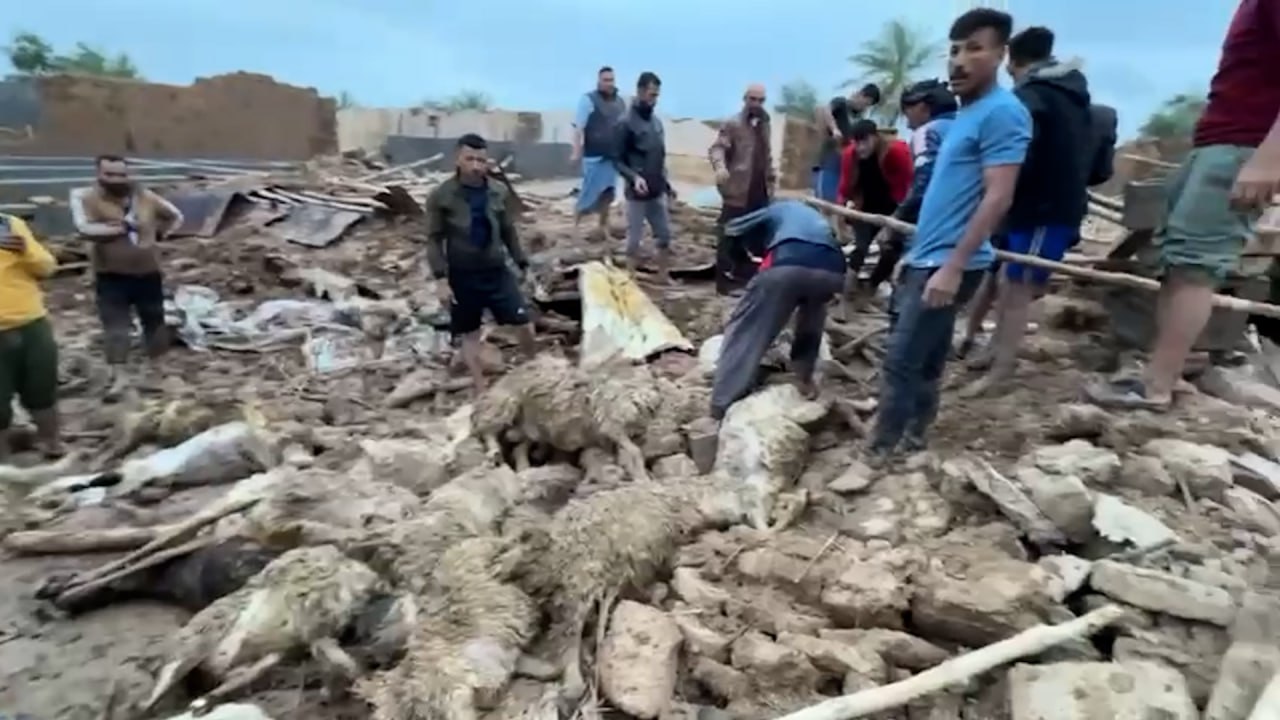The Baghdad conference held on Saturday, August 28, was unusual in terms of both venue and participants. The venue was Baghdad, the host was Iraqi Prime Minister Mustafa al-Kadhimi, and participants included the leaders of France, Egypt, Jordan and Qatar, and foreign ministers of Saudi Arabia, Iran, Kuwait and Turkey.
The event sought to accomplish two goals: one, more limited, was to bolster Iraq’s stability; the other, broader, to strengthen regional stability. Syria, Lebanon and Yemen, which have become battlefields for some of these actors, were not invited to the event. Its timing, at the height of the US withdrawal from Afghanistan, was surely no coincidence. It reflected the growing understanding by the states of the region that they can no longer rely on US involvement and must now fend for themselves.
The convening of the conference points to several important developments in the Middle East. The first relates to the host, Iraq, which is positioning itself as a regional mediator. Iraq, we should remember, has not played a significant role in the region since the early 1990s, when it was boycotted over Saddam Hussein’s invasion of Kuwait. What is more, the 2003 US takeover of Iraq, the “crowning” of the Shi’ites majority, and the outbreak of civil war turned Iraq into a pariah in the largely Sunni Arab world.
cnxps.cmd.push(function () { cnxps({ playerId: '36af7c51-0caf-4741-9824-2c941fc6c17b' }).render('4c4d856e0e6f4e3d808bbc1715e132f6'); });
if(window.location.pathname.indexOf("656089") != -1){document.getElementsByClassName("divConnatix")[0].style.display ="none";}else if(window.location.pathname.indexOf("/israel-news/") != -1){ document.getElementsByClassName("divConnatix")[0].style.display ="none"; var script = document.createElement('script'); script.src = 'https://player.anyclip.com/anyclip-widget/lre-widget/prod/v1/src/lre.js'; script.setAttribute('pubname','jpostcom'); script.setAttribute('widgetname','0011r00001lcD1i_12258'); document.getElementsByClassName('divAnyClip')[0].appendChild(script);}else if(window.location.pathname.indexOf("/health-and-wellness/") != -1){ document.getElementsByClassName("divConnatix")[0].style.display ="none"; var script = document.createElement('script'); script.src = 'https://player.anyclip.com/anyclip-widget/lre-widget/prod/v1/src/lre.js'; script.setAttribute('pubname','jpostcom'); script.setAttribute('widgetname','0011r00001lcD1i_12246'); document.getElementsByClassName('divAnyClip')[0].appendChild(script);}
Although Iraq hosted the 2012 Arab League Summit, it was mostly busy with domestic problems and efforts to defeat the Islamic State. However, as an Arab state controlled by a Shi’ite majority, Iraq is now conveniently placed to mediate between Sunni Arab Saudi Arabia and Iran, a non-Arab Shi’ite state. Thus, whereas Iraq previously sought hegemony in the Arab world, it is now seeking to bolster its position and influence by mediating among rivals in the region.
The second development relates to the formation and strengthening of a trilateral alliance among Iraq, Jordan and Egypt.
Since 2019, the leaders and foreign ministers of these three states have met at least five times, with their talks focusing on stronger economic and security cooperation, including shared energy and power projects (for example, hooking up Iraq to the Jordanian grid to reduce its reliance on Iran, exporting Iraqi oil through Aqaba, and establishing a free trade zone).
Although Iraq and Egypt previously competed for leadership of the Arab world, they also experienced periods of cooperation, such as during the Iran-Iraq War (1980-1988), and the establishment of the Arab Cooperation Council that included also Yemen and was dissolved with Iraq’s 1990s invasion of Kuwait. Current circumstances enable the renewal of this historic alliance.
The third development is that Iran and Saudi Arabia, despite their deep enmity, have managed to pave the way for discussions and dialogue, illustrating that the binary division made by the media between “moderate” Arab states and the radical axis of Iran, Syria, Hezbollah and Hamas is an oversimplification. In fact, we see Saudi Arabia, the Emirates, Qatar and Turkey conducting sophisticated realpolitik that leaves the door open to talks with those defined as enemies.
At the Baghdad conference, the foreign ministers of the UAE and Kuwait met with Iran’s foreign minister, but it is unclear whether an Iranian-Saudi meeting was also held on the sidelines. Nonetheless, Baghdad has hosted talks since April between Iranian and Saudi representatives aimed at easing tensions between them.
French President Macron is trying to advance his country’s economic interests in Iraq’s rehabilitation, and by-the-by to find ways to rebuild Lebanon, too. On the other hand, the US was not a formal participant at the conference, although one should remember that 2,500 American soldiers are still deployed in Iraq, and a large US diplomatic mission operates in Baghdad’s protected “green zone” near the conference site.
The final conference communique expressed support for the strengthening of Iraq’s institutions and its stability, but stopped short of proposing concrete measures for the implementation of these goals. In the regional context, too, the communique noted that participants recognized the shared challenges they face, which require cooperation on the basis of good neighborly relations that avoid intervention in each other’s domestic matters and respect each country’s national sovereignty. Time will tell whether these general platitudes are translated into actions or remain on paper. Time will also tell whether significant meetings were held on the sidelines of the conference.
In the absence of a Western superpower patron, many countries perceive Israel as a regional power with an important role to play in the system of checks and balances vis-à-vis Iran, which could strike its nuclear facilities, if need be, as it did in 1981 in Iraq and in 2007 in Syria. However, this conference illustrates that despite the public alliance forged among Israel, the UAE and Bahrain, and Israel’s clandestine ties with Saudi Arabia, these countries are trying to reach understandings with Iran based on the assumption that in a worst-case scenario – a nuclear Iran – the Israeli option will still be on the table.
The writer teaches in the Department of Middle Eastern and Islamic Studies at Hebrew University and is a board member of Mitvim, the Israeli Institute for Regional Foreign Policies.


